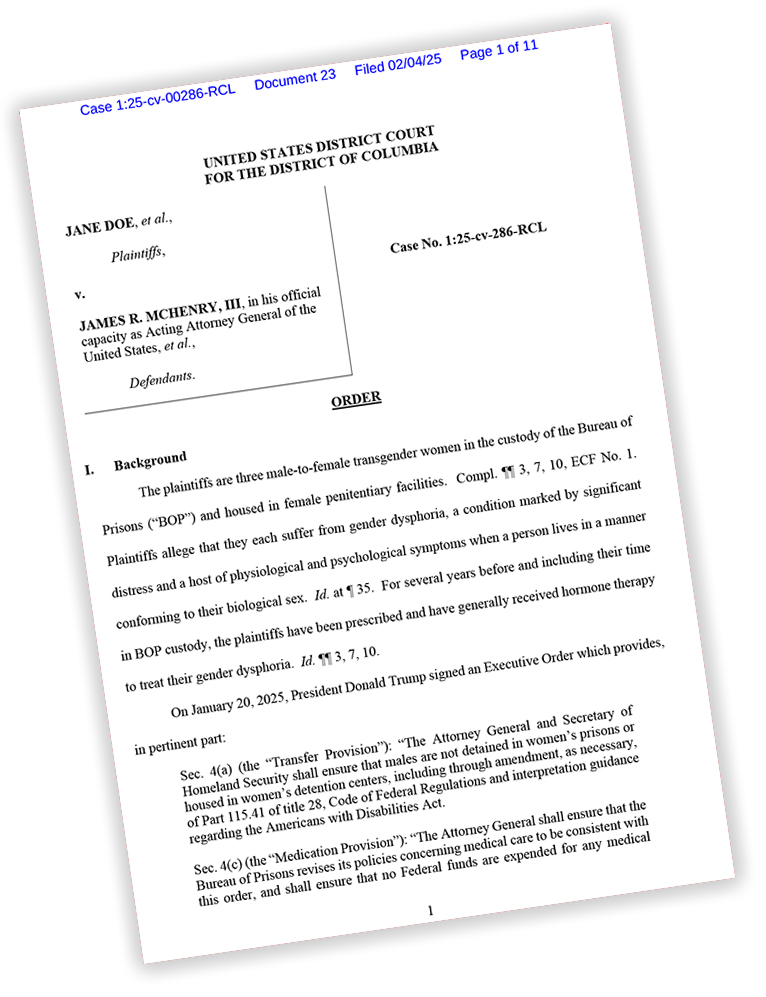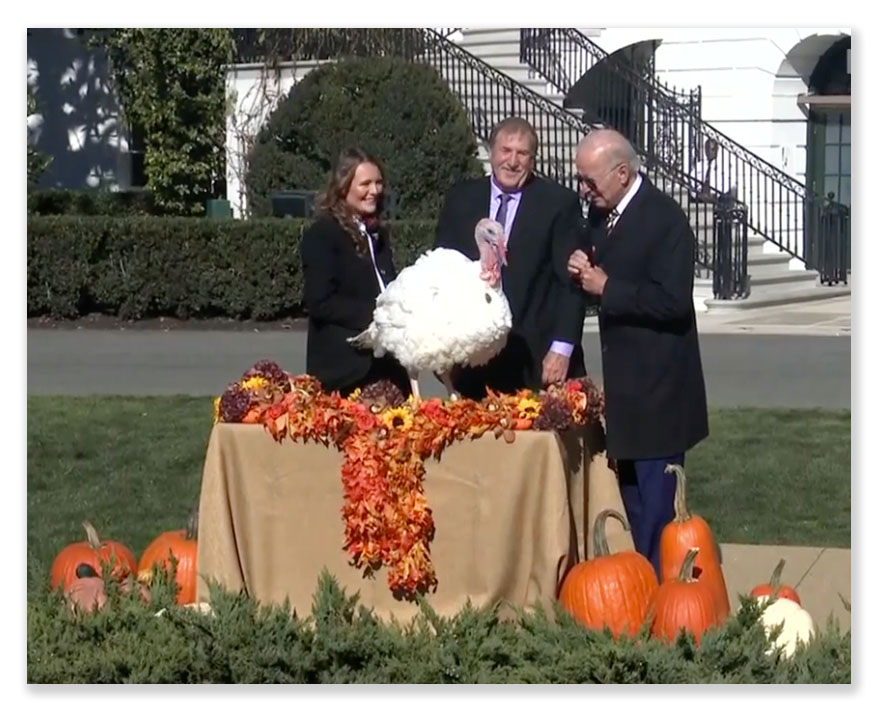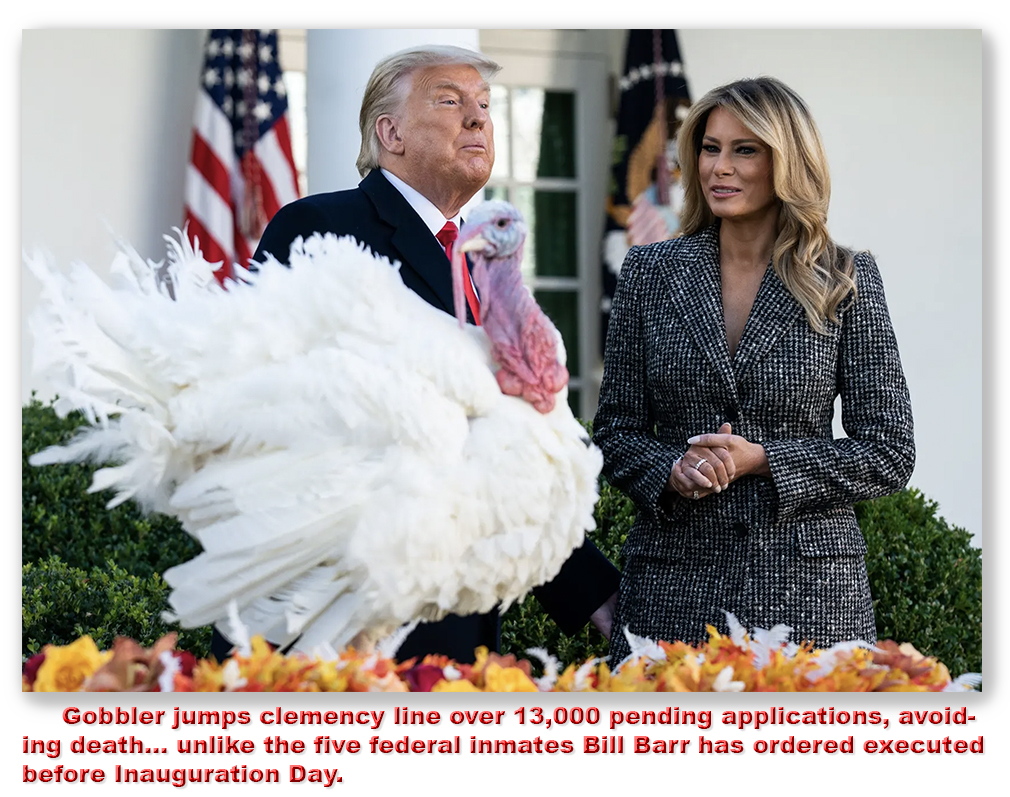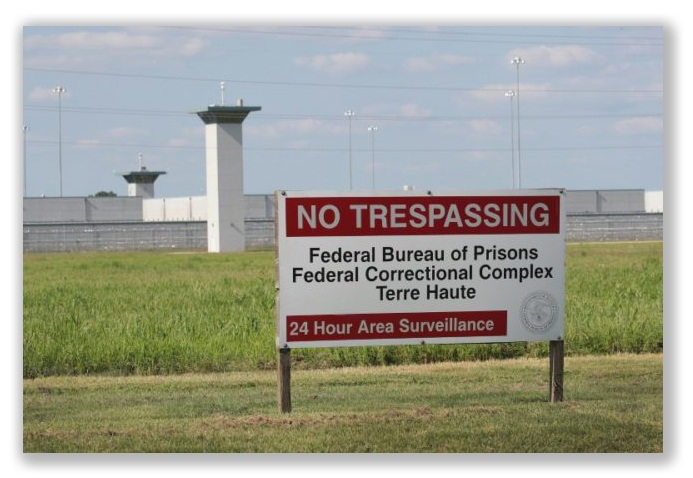We post news and comment on federal criminal justice issues, focused primarily on trial and post-conviction matters, legislative initiatives, and sentencing issues.

GIVE ‘EM HELL, HARRY
Legend has it that President Harry Truman was giving a speech when an enthusiastic supporter shouted, “Give ‘em hell, Harry!” The President replied, “I don’t give them hell. I just tell the truth about them, and they think it’s hell.”
I got an email from a reader who said, “We appreciate your work on the news letters. but a LOT!!! of us are Trump fans. We don’t want to listen (read) liberal bs about our president.”
 No BS, no hell, just the facts:
No BS, no hell, just the facts:
President Trump’s new attorney general, Pam Bondi, issued as memo her first day in office outlining general policy regarding charging, plea negotiations, and sentencing for prosecutors. She directs that in federal criminal cases, prosecutors “should charge and pursue the most serious, readily provable offense. The most serious offenses are those punishable by death, or those with the most significant mandatory minimum sentences (including under the Armed Career Criminal Act and 21 USC § 851) and the most substantial recommendation under the Sentencing Guidelines.”
Last Friday, Bondi reversed a Biden administration decision, ordering the transfer of George Hanson, a federal inmate to Oklahoma so he can be executed, following through on Trump’s executive order to more actively support the death penalty.
 Bondi directed the Bureau of Prisons to transfer an inmate serving a life sentence at USP Pollock who is also under a state death sentence for a different crime. Oklahoma asked for the transfer several years ago, but the Biden Administration refused. Oklahoma wants the transfer to be done quickly so that it can kill him in its May execution cycle.
Bondi directed the Bureau of Prisons to transfer an inmate serving a life sentence at USP Pollock who is also under a state death sentence for a different crime. Oklahoma asked for the transfer several years ago, but the Biden Administration refused. Oklahoma wants the transfer to be done quickly so that it can kill him in its May execution cycle.
ABC reported on Friday that it obtained a memorandum of understanding between the BOP and Immigration and Customs Enforcement that despite chronic staffing shortages to manage its existing population, the Bureau will house ICE detainees at FDCs in Philadelphia, and at Atlanta, Leavenworth and Berlin FCIs.
KQED reported last Friday that ICE officials and BOP national and regional staff inspected FCI Dublin – a women’s prison that closed last April due to a staff-on-inmate sexual abuse scandal – to determine its availability to hold immigrant detainees.
 “With the contract that ICE and BOP have entered into and the needed bed space…and then their assessments — them coming to the facility and doing these assessments — my opinion would be the indication is absolutely there that this is potentially going to be converted to an ICE facility,” said John Kostelnik, western regional vice president for the AFGE Council of Prison Locals No. 33. “There’s a lot of unofficial notice from agency officials and others that are telling us that this is what is happening.”
“With the contract that ICE and BOP have entered into and the needed bed space…and then their assessments — them coming to the facility and doing these assessments — my opinion would be the indication is absolutely there that this is potentially going to be converted to an ICE facility,” said John Kostelnik, western regional vice president for the AFGE Council of Prison Locals No. 33. “There’s a lot of unofficial notice from agency officials and others that are telling us that this is what is happening.”
I received reports from several people last week that the BOP has returned all non-citizens in halfway house or on home confinement pursuant to FSA credits to secure custody. The reports came from several different parts of the country and appear reliable, but they are not officially confirmed.
In a press release and earnings call last week, CoreCivic’s CEO told investors that the company – which has contracts to detain people for ICE in its private prisons, expects a massive increase in the number of people it will be holding. The company also expects growth from BOP contracts. Trump has allowed the BOP to again contract with private prison operators after Biden canceled BOP private prison contracts in 2021.
Finally, the BOP issued a press release confirming that because of Trump’s January 20 Executive Order directing agencies to remove content related to gender ideology from their publications — “some content on our public website (www.bop.gov) is temporarily unavailable as we work to fully implement the Executive Order.” For the last four weeks, the BOP’s extensive online library of program statements has been unavailable.
Attorney General, General Policy Regarding Charging, Plea Negotiations, and Sentencing (February 5, 2025)
Associated Press, Bondi orders federal inmate transferred to Oklahoma for execution (February 14, 2025)
ABC News, Males detained by ICE to be housed in federal prisons, new memo says (February 14, 2025)
BOP, Agency Complies with Executive Order (February 11, 2025)
KQED, ICE Weighs Turning FCI Dublin Into Detention Center, Union Leaders Say (February 14, 2025)
Arizona Republic, Private prison company CoreCivic anticipates ‘growth opportunities’ under Donald Trump (February 11, 2025)
– Thomas L. Root




























